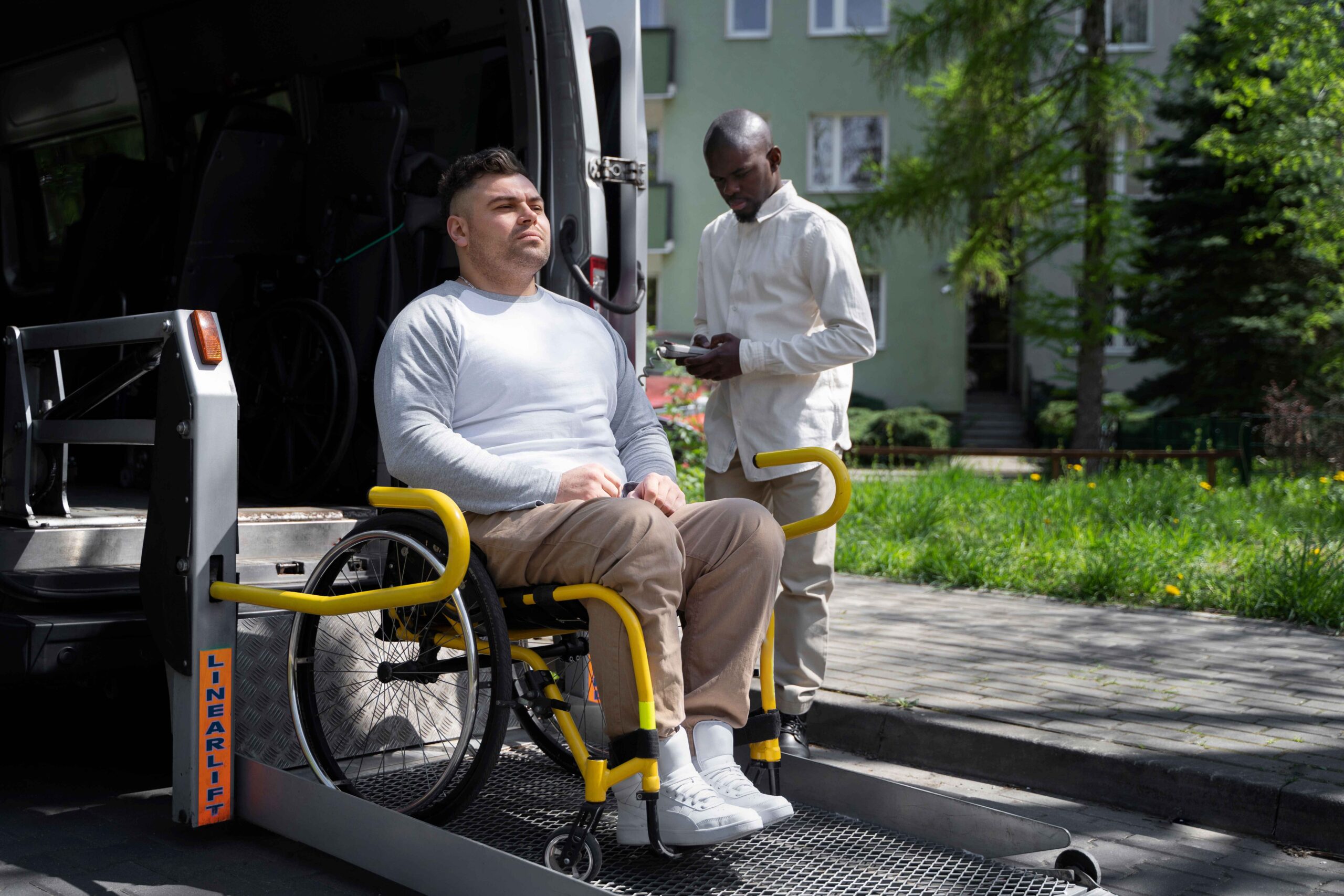About Transportation Services
At Daily Care Support Services, we understand the importance of reliable transportation for individuals with disabilities. Whether it’s getting to a medical appointment, a social outing, or an important job interview, our Transportation Services are designed to provide safe, comfortable, and accessible rides to help individuals maintain their independence and stay connected to the community. Our mission is to break down barriers to inclusion by offering transportation that meets the unique needs of those we serve.
We provide dependable, door-to-door transportation for seniors, adults with disabilities, and anyone needing assistance getting from one place to another. Whether for essential errands or community engagement, our services ensure that no one is left behind.
What We Offer
Safe, Accessible Rides: Comfortable and fully accessible vehicles equipped for individuals with mobility challenges, including wheelchair accessibility.
Medical Appointments: Reliable transportation to and from doctor’s visits, therapy sessions, and hospital appointments.
Employment Opportunities: Rides to job interviews, work, and vocational training programs to ensure greater access to employment and career opportunities.
Shopping and Errands: Assistance with transportation to grocery stores, pharmacies, and other essential errands.
Social and Community Outings: Rides to social events, family gatherings, and community activities to promote social inclusion and well-being.
Flexible Scheduling: We offer rides based on your schedule, ensuring that you never miss important appointments or opportunities.
Why Choose Our Transportation Services?
Reliable and Punctual: We understand the importance of being on time. Our drivers are always prompt and prepared, ensuring you get to your destination without stress.
Compassionate Drivers: Our drivers are trained to provide safe, respectful, and courteous transportation, ensuring you feel comfortable and supported during your ride.
Customized Services: We cater to the unique needs of each individual, offering flexible transportation solutions tailored to your lifestyle and schedule.
Accessibility: Our vehicles are equipped to accommodate wheelchairs, scooters, and other mobility devices, ensuring everyone has access to safe transportation.
Frequently Asked Questions
What is OCD and what are its common symptoms?
Obsessive-Compulsive Disorder (OCD) is a mental health condition characterized by unwanted, persistent thoughts (obsessions) and repetitive behaviors or mental acts (compulsions) that an individual feels driven to perform. Common symptoms include excessive hand washing, checking, counting, or arranging items, as well as intrusive thoughts related to contamination, harm, or orderliness.
How is OCD diagnosed?
OCD is diagnosed through a comprehensive evaluation by a mental health professional, which includes a detailed discussion of the individual’s symptoms, medical history, and the impact of these symptoms on their daily life. The clinician may use standardized assessment tools and questionnaires to aid in the diagnosis.
What treatments are available for OCD?
The primary treatments for OCD include Cognitive Behavioral Therapy (CBT) with a focus on Exposure and Response Prevention (ERP), and medication such as selective serotonin reuptake inhibitors (SSRIs). CBT and ERP help patients confront their fears and reduce the compulsive behaviors, while medications can help manage the symptoms.
How effective is therapy for treating OCD?
Therapy, particularly CBT with ERP, is highly effective in treating OCD. Studies show that a significant majority of patients experience a reduction in symptoms and an improvement in their quality of life with this treatment approach. The effectiveness can vary depending on the severity of the condition and the individual’s commitment to the therapy process.
Can OCD be cured?
While there is no definitive cure for OCD, many individuals can achieve significant symptom relief and live fulfilling lives through effective treatment. Ongoing therapy and, in some cases, medication can help manage the symptoms and reduce their impact on daily activities. Long-term maintenance strategies are often necessary to prevent relapse.







